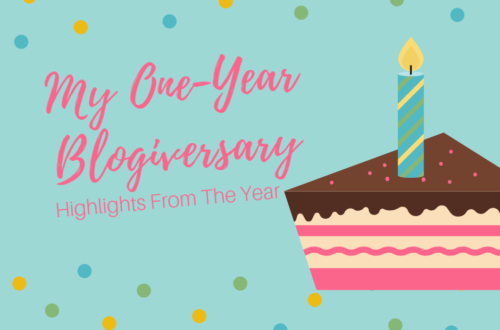
How to Set Writing Goals for the Year
I hope this list inspires you to set writing goals of your own for this year. I’m reviewing the writing goals I set in 2017 to help me choose my writing goals for 2018.
Last year was the first time I set concrete writing goals for myself. I divided the list into 7 yearly goals and 4 monthly goals. The monthly goals are the stepping stones that make the yearly goals achievable.
I chose goals that were clear and measurable (for instance, “edit two poems,” vs. the more vague “write more poetry”).
How did setting goals help me? Being able to keep track of what I accomplished encouraged me to keep going. Also, since I deal with daily exhaustion and brain fog, it helped to have a concise list to refer to. Instead of spending time and energy trying to decide where to start or what to work on next, I pulled out my list, picked a to-do, and did my best. I saw a lot of progress as I reviewed my goals each month, and I hope you do to.
YEARLY GOALS
1. Edit two short stories
It was important for me to set an easily achievable first goal. I hadn’t touched my two finished stories in some time, and I just needed to give them another read through and do some polishing.
If you have writing projects that are nearly complete, I recommend putting them at the top of your list. You’ll get a boost by checking something off your list, as well as the thrill of having a completed piece of writing in hand.
I ended up submitting one story to a contest, but it wasn’t published. But hey, I gave it a shot.
Status: Completed
2. Finish writing three children’s books manuscripts
At the start of the year, I had two children’s books in draft form, and an idea for a third. I finished the first two! (Well, now I have revisions to make after receiving feedback, but they were indeed done at the end of the year. Just goes to show you that writing goals can be a bit fluid.)
The third one didn’t get written, so I’ll roll it over to the next year. At least I got the idea down so that I can work on it later. If you have a goal roll over to the next year, don’t sweat it.
If you don’t have a book already roughed out, it might be more reasonable to set your goal at one children’s book for your first year. You can always add on later (you overachiever you!).
Status: Two-thirds Completed
3. Attend writing training
Due to my health, trainings had to fit two criteria: they had to be free and they had to be online. I ended up attending two webinars, one at the recommendation of a friend, and the second one after seeing a Facebook ad. (Tip: the more you click on writer’s links and follow writers on Facebook, the more writing workshops that will show up in your newsfeed.)
The two webinars I attended were:
- The Busy Person’s Guide to Writing a Book by Michael Hyatt and
- 4 Critical Keys to Make a Living Writing by Jeff Goins
The webinars provided good reminders of information I learned in college, up-to-date insights, and a boost of enthusiasm for writing. I highly recommend searching out webinars that will do the same for you.
Status: Completed
4. Publish at least three poems in literary journals
This goal is the one I had the least control over. But having this goal in mind spurred me on to keep submitting to a literary journals.
If you’re struggling with having your work rejected, shake it off and keep submitting. All you need is for one person to love your work. Persistence is key to getting published.
Status: Completed
5. Finish a draft of a book
I came so close to reaching this goal. I started out the year wanting to finish the first draft of one of my novels, and then I switched focus to work on a nonfiction book. I was aided by the journaling and note taking I had been doing for the last couple years for that book. All things considered, I am proud of the progress I made, so I’m going to give myself a gold star on this one. Instead of beating myself up about not quite reaching a goal, I want to focus on taking pride in what I did accomplish.
Status: All-But-Completed (Gold Star Achieved)
6.Submit a piece of writing to a literary agent
Yikes, right? I was almost afraid to put this one in writing. Because once it was on the list, I had to do it. There would be no dodging it.
I ended up submitting my children’s books to a friend who has recently become a literary agent. (I figured that would be easier in some ways than submitting to a complete stranger.) The whole process was much less painful than I expected, and I received great feedback. I’m feeling much less nervous about taking this step again in the future now that I’ve done it once.
If you’re debating putting this on your list, just do it. It’s worth the risk. Get your words out there. Also, as writers, we should thrive on feedback that gives our books the chance to be the best they can be. Submitting your work is a great opportunity to get this valuable feedback.
Status: Completed
7. Read about writing
I find reading about writing not only spurs on my desire to write, but also makes my writing goals seem much more doable. I’ll be posting sporadic book recommendations about writing on my blog, so stay tuned, and start digging into books that inspire you as an author!
Status: Completed
MONTHLY GOALS
So, how did I reach these yearly goals? The goals I set for myself on a monthly basis were crucial.
1. Edit two poems
I have dozens of poems in various stages just languishing on my computer. Some need polishing, some need serious editing, some need a complete overhaul. My success rate was a little hit or miss because my poems are a little hit or miss. My ultimate goal was to have two poems completed by the end of each month, and I hit this goal some of the time.
I found that it was less important to have two poems done at the end of the month than to be actively working on two poems a month. Since my poems were on my mind, I found I was more likely to be musing about them and jotting down ideas. Some poems simply refused to be finished in a tight deadline, and I found I was okay with that. I didn’t want to box my poems in. Poetry is supposed to be a little wild.
Status: Completed Several Months
2. Submit to a literary journal
There is a lot of behind-the-scenes work that goes into submitting to literary journals. I kept a list of journals to research and read from. When I found one I liked, I added their submission deadlines to my calendar.
Because of the leg work involved and the fact that submissions weren’t always open, I didn’t submit every month.
Status: Completed Several Months
PS Here are writing contests I recommend you check out, plus my resources for finding places to publish your poetry and other creative writing.
3. Work on your short stories and/or book(s)
I’m not a huge stickler on having to write every day or at a certain time. With chronic illness, it just isn’t practical, and when I tried it, seeing how often I “failed” at writing when I was supposed to stressed me out. That wasn’t very helpful toward reaching my goal.
And, if you read advice from famous authors about the best time/structure for writing, their answers vary as greatly as the authors do themselves.
My main focus was to write consistently. I aimed to write at least two days a week, no set day, no set time slot. I found this took the pressure off me and made writing more enjoyable. I wrote when and for how long I could, and made sure to keep at it several times a month.
Find a rhythm, or lack of rhythm, that works for you, and write your heart out.
Status: Completed
4. Encourage another writer
I added this goal early in the year when I found myself wanting to have a sense of a writing community.
Encouraging other writers is easier than you think. Sometimes it was just dropping a line and asking a friend how their writing was going or recommending writing books or webinars. Some months I was able to meet with a friend or catch up over the phone. I was also encouraged by the writers I connected with, and greatly benefitted from their recommendations and insights.
If you don’t know anyone who’s working on a book, you can send out feelers on social media or look into online writer’s groups.
Status: Completed Most Months
YOUR GOALS
Now it’s your turn. Are you planning on starting a list of writing goals for the new year?
Which goals do you think will be most helpful? Share your list in the comments!
Love reading as much as you love writing? Here are my tips for setting *reading* goals for the year.




2 Comments
Katie
This is my second year at home since my diagnosis of IC and Fibromyalgia. The first year was focused only on my health. Now, I’m working on writing, among other things like being a mom and a grandma. However, i am definitely struggling with writing the way I’d like. Brain fog and fatigue are major sabotuers. This outline is helpful, albiet a bit too steep for me. Currently getting one blog post done a week has been my main goal. My fiction novel has lots of fleshed out notes but is languishing off to the side. I have poems id like to share out.
You have inspired me. Thank you.💗✒️
Cassie Creley
I’m so thankful this post inspired you Katie!
Blogging once a week is a huge accomplishment! My goals are certainly more scaled back this year, especially now that I’m blogging too. I hope that you’re able to work towards all your writing goals at the right time, when it’s best for your health.
Best wishes on your health and writing journey!